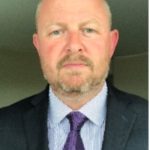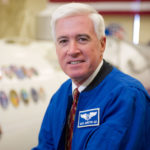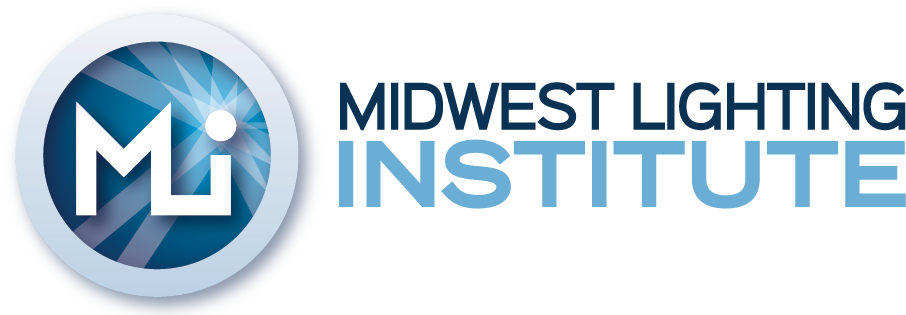About Us

The Midwest Lighting Institute was founded by Rodney Heller of Energy Performance Lighting (EPL), to test some of the benefits seen in his lighting upgrade work into official peer-reviewed studies. Over the nearly 20 years of performing energy-efficiency lighting retrofits at EPL, Rodney became interested in the science of lighting and more specifically, interactions that happen between light and human beings in their everyday lives. As his interest in the human physiological response to light became more prevalent, he began implementing some of the research into his projects, which yielded positive results for EPL’s customers. These experiences led him to the conclusion that more research was needed to do full-scale applications of lighting, and he formed the Midwest Lighting Institute (MLI) to address this need.
As a non-profit 501(c)(3) corporation, MLI fulfills the need to evaluate how lighting affects human performance through expanded research, whether that performance metric is measured as fewer medical errors in a hospital, fewer falls in nursing homes, or improved performance of third shift workers for NASA. The common theme of this work is to optimize lighting performance for humans through the research performed at MLI, using the latest technologies for energy savings and control strategies through the expertise at EPL.
As a non-profit 501(c)(3) corporation, MLI fulfills the need to evaluate how lighting affects human performance through expanded research, whether that performance metric is measured as fewer medical errors in a hospital, fewer falls in nursing homes, or improved performance of third shift workers for NASA. The common theme of this work is to optimize lighting performance for humans through the research performed at MLI, using the latest technologies for energy savings and control strategies through the expertise at EPL.
ADVISORY COUNCIL

Steven Lockley, Associate Professor in Medicine, Harvard Medical School; Neuroscientist, Brigham and Women’s Hospital
Steven is an Associate Professor in Medicine at Harvard Medical School and a Neuroscientist, Division of Sleep Medicine, Brigham and Women’s Hospital. He has 35 years experience of circadian rhythm and sleep research, including the effects of light on human physiology. He has published more than 100 original reports, reviews, chapters and editorials on circadian biology and sleep, with the majority examining the role of light, or lack of light, on sleep, alertness and circadian rhythms. He has won several awards including the Taylor Technical Talent Award from the Illuminating Engineering Society of North America for a paper on the application of ‘circadian’ lighting to architectural design. More details see: https://sleep.med.harvard.edu/people/faculty/163/

Brian Liebel, Illuminating Engineering & Research Group
Brian Liebel has over 35 years’ experience in lighting design, engineering, and research, and provides independent consulting through his Florida firm, Illuminating Engineering and Research Group. His experience includes being the Principal Investigator for the US Department of Energy’s Spectrally Enhanced Lighting program, and he was the Director of Standards & Research at the Illuminating Engineering Society for six years. He dedicates his efforts to promoting quality lighting that improves the human condition, our environment, and a better world.

Richard Moss, Professor & Senior Associate Dean for Basic Research, Biotechnology & Graduate Studies, University of Wisconsin School of Medicine and Public Health
Richard received his Ph.D. in Physiology and Biophysics from the University of Vermont, followed by postdoctoral studies at the Boston Biomedical Research Institute. He served as Chair of Physiology Department at the UW from 1988 to 2009 and grew it to became one of the leading research departments in the nation. He founded the U.W. Cardiovascular Research Center and the M.S. in Biotechnology degree program. Moss’s research focuses on heart failure, its causes, and therapeutic approaches to the disease. He has authored more than 150 papers and has supervised more than 20 graduate students and post-doctoral fellows.

Smith L. Johnston, III, M.D., M.S., Chief Medical Officer and Lead Flight Surgeon for Axiom Space, Inc.
Smith Johnston, from Woodstock, Georgia, received a Bachelor of Science in biology in 1976 and a Doctor of Medicine in 1981 from Emory University in Atlanta, Georgia. From 1984 to 1990, Dr. Johnston completed residencies in Internal and Aerospace Medicine from Wright State University, as well as a Master’s of Science in Aerospace and Preventive Medicine.
Dr. Johnston is the Chief Medical Officer and Lead Flight Surgeon for Axiom Space, Inc. in Houston, Texas. He is a member of the associate clinical faculty at the University of Texas Medical Branch, Department of Preventive, Occupational and Environmental Medicine in Galveston, Texas. He has spent most of his career as a medical officer and flight surgeon for the NASA Medical Operations Branch at the NASA Johnson Space Center. Clinically supporting 25 Shuttle missions and 2 ISS Expedition missions. Dr. Johnston is board certified in Aerospace Medicine from the American Board of Preventive Medicine, and a fellow of the Aerospace Medical Association. Dr. Johnston’s expertise centers on taking the innovations discovered from the US, International, and Commercial Space Programs to benefit not only the lives of the astronauts and cosmonauts, but also his earth-bound patients.
FUNDING
Midwest Lighting Institute (MLI) is a 501(c)3 non-profit company, initially funded for start-up and preliminary studies through contributions from Energy Performance Lighting LLC. MLI has also received funding from Stoughton Utilities, WPPI Energy and the Wisconsin Department of Health Services for our applied research in operational healthcare facilities, to put the latest science in real applications to advance the health of patients and healthcare workers while saving energy and maintenance costs.>MLI continues to seek funding and grants from corporations and institutions to further studies on the effect of light on human health, productivity, and safety. If you have a candidate facility and/or funding available to advance studies in light and health, please contact us to see how we can work together.

GUIDING PRINCIPLES
- Our research, technologies, and services will include products vetted by scientists, practitioners, and industry experts at the highest standard of care.
- Our research, technologies, and services will maintain objectivity through manufacturer-neutral assessments.
- Our research, technologies, and services will embrace collaboration with individuals and institutions that are specialized and recognized in their fields.
WORK WITH US
If you or your organization is interested in advancing the science of lighting and human physiology, we’d love to talk. Contact us below.
WORK WITH US
If you or your organization is interested in advancing the science of lighting and human physiology, we’d love to talk. Contact us below.
